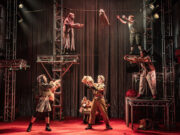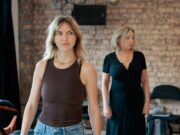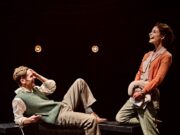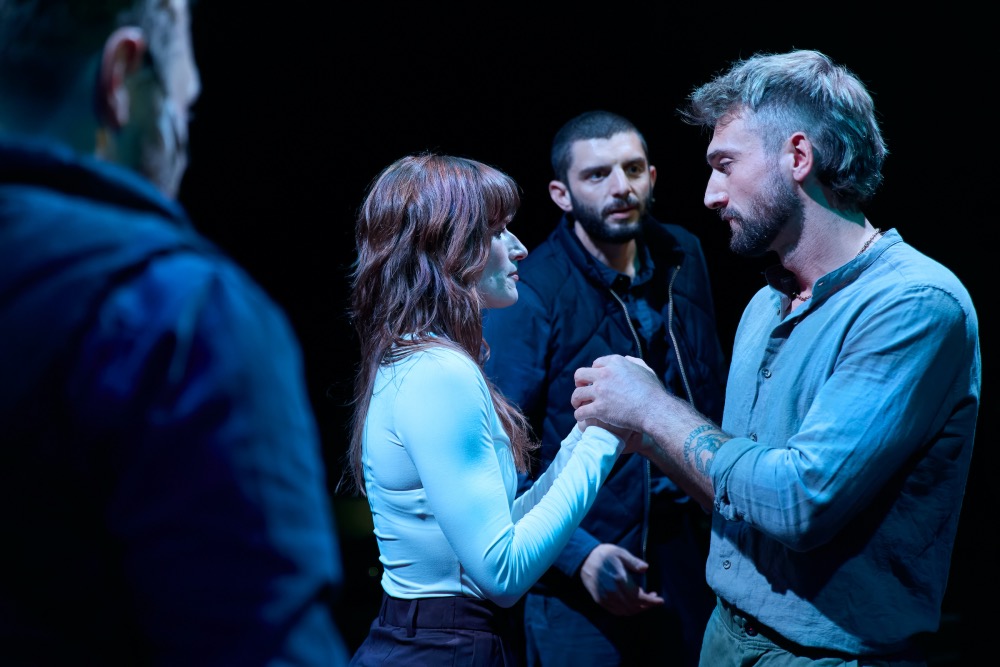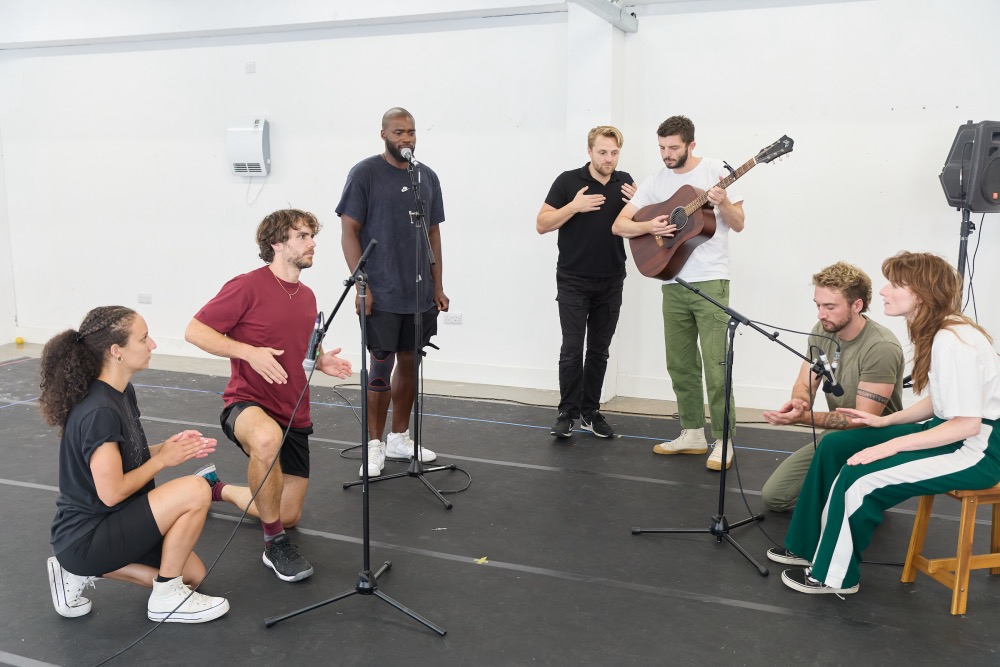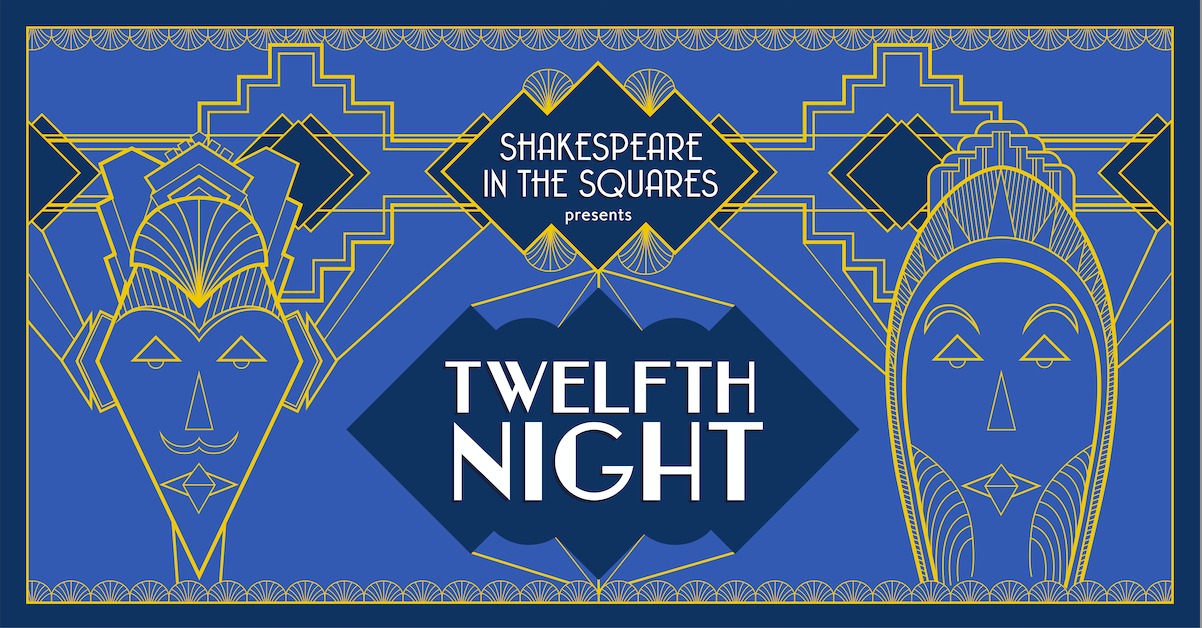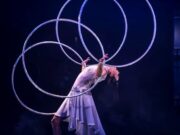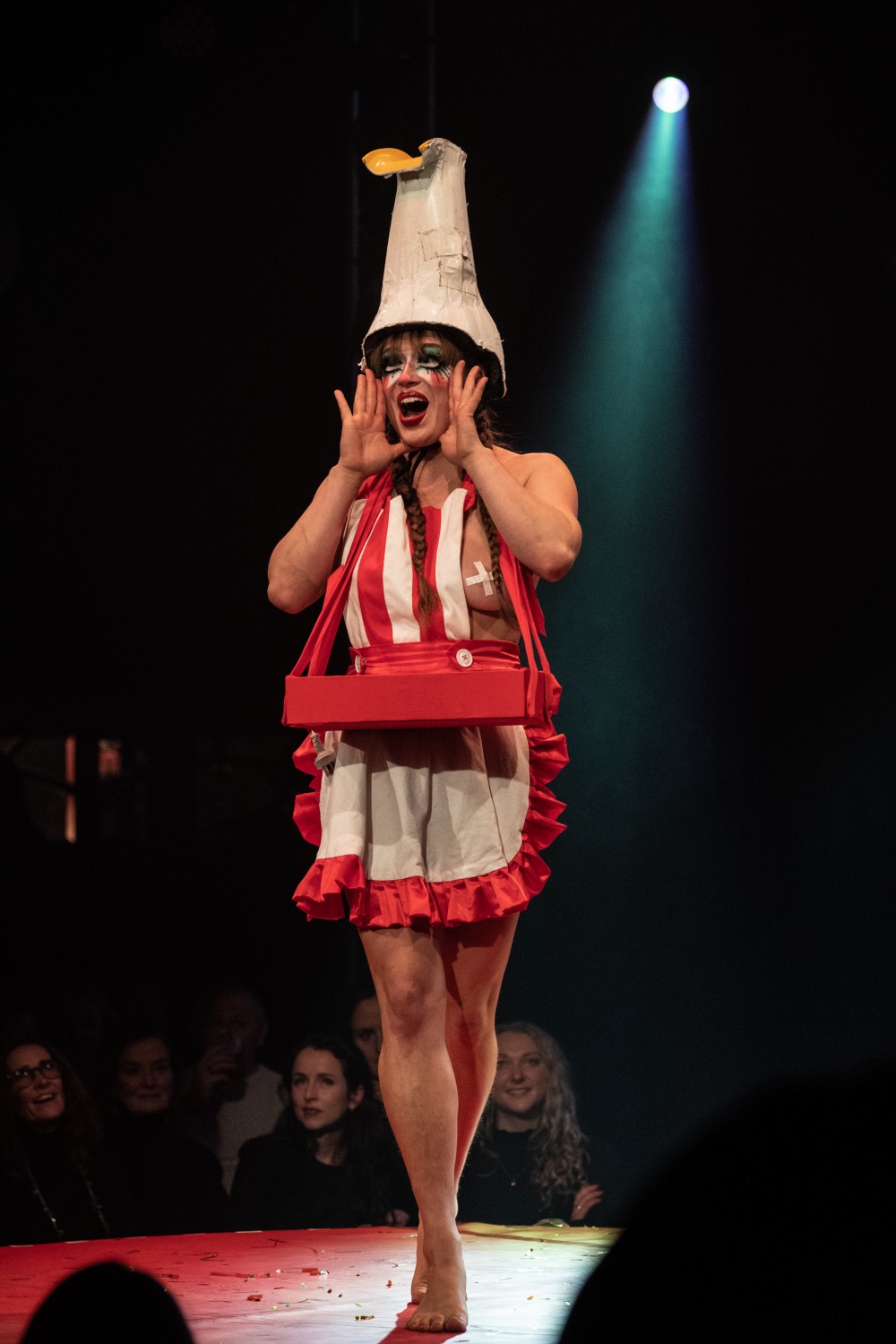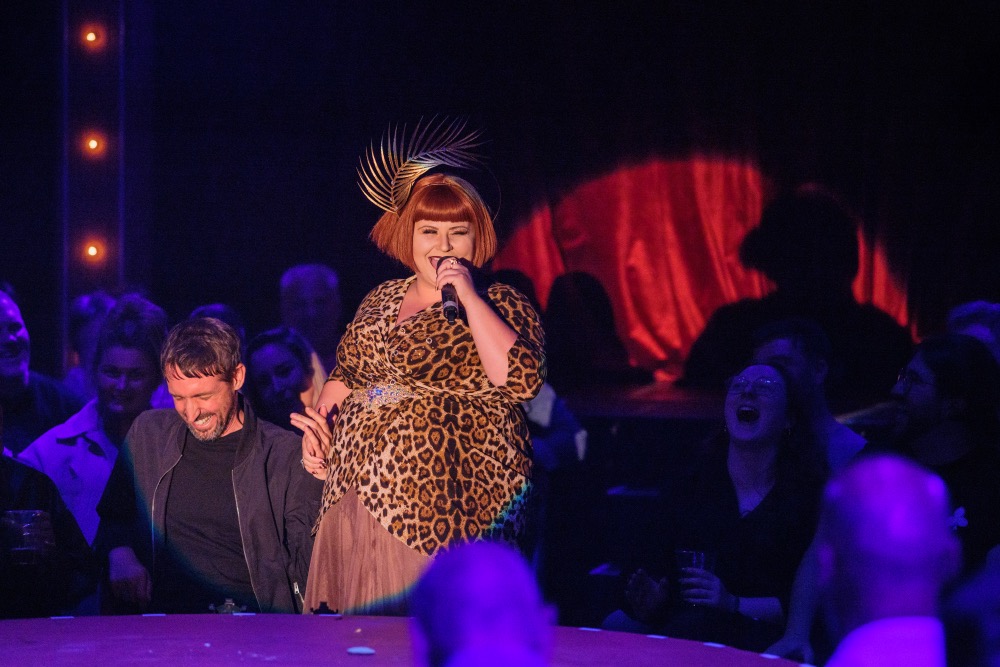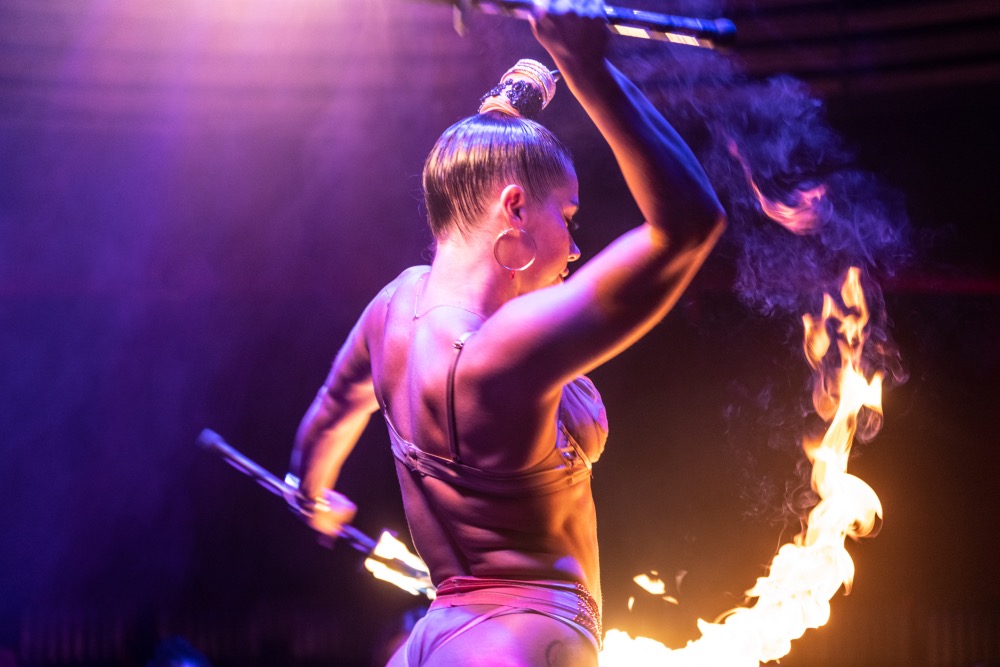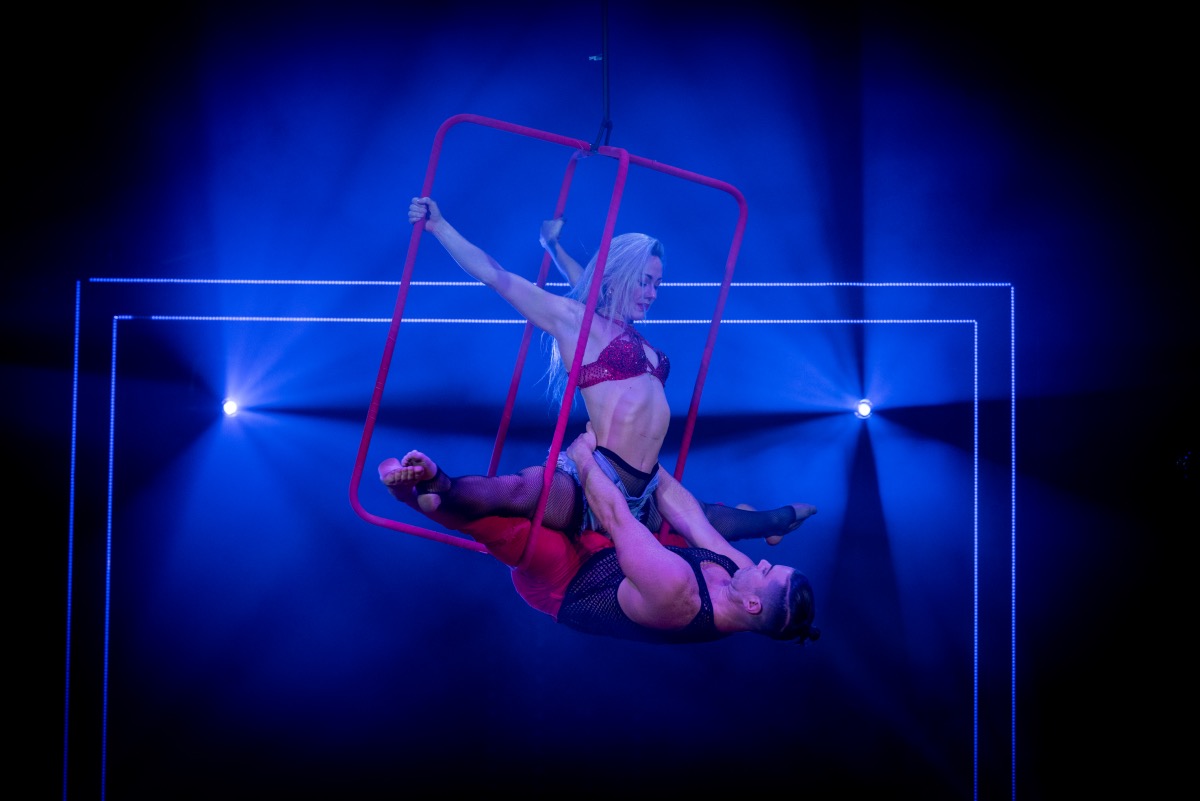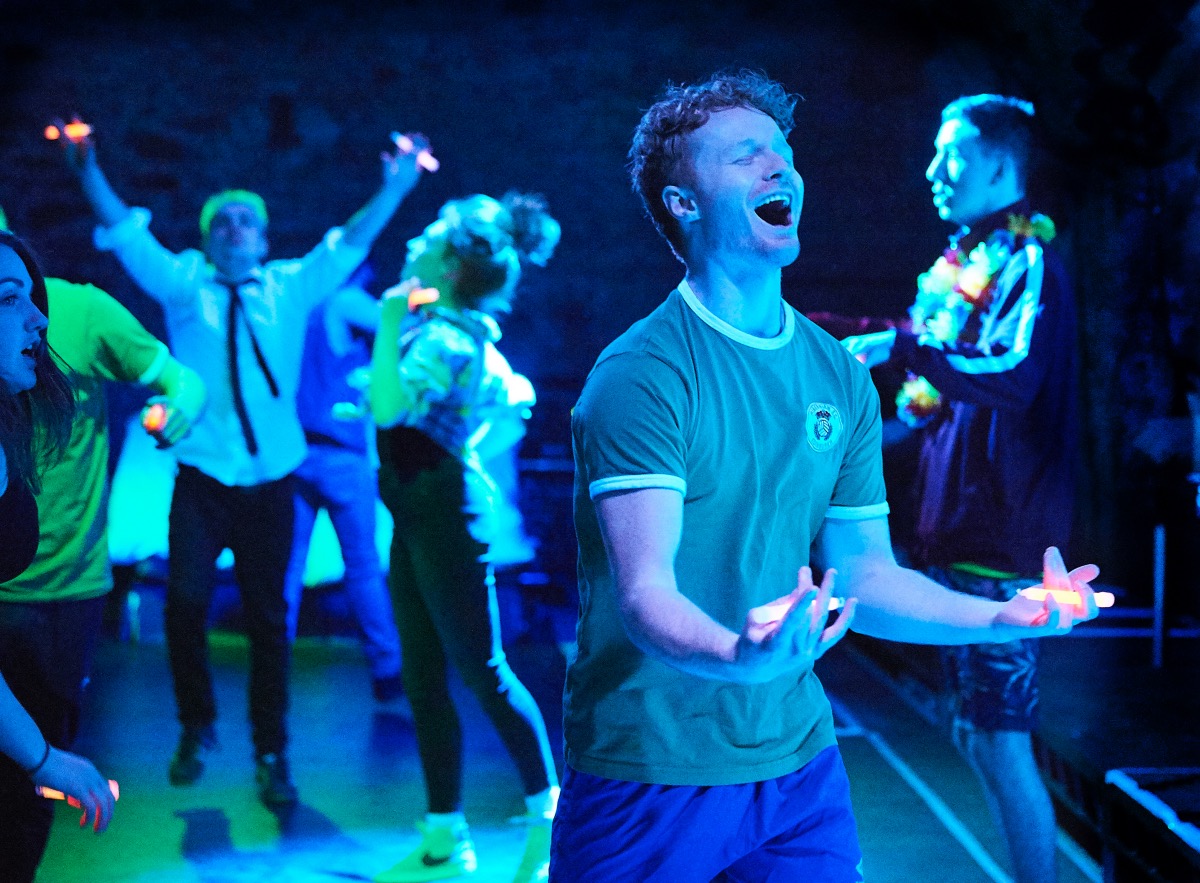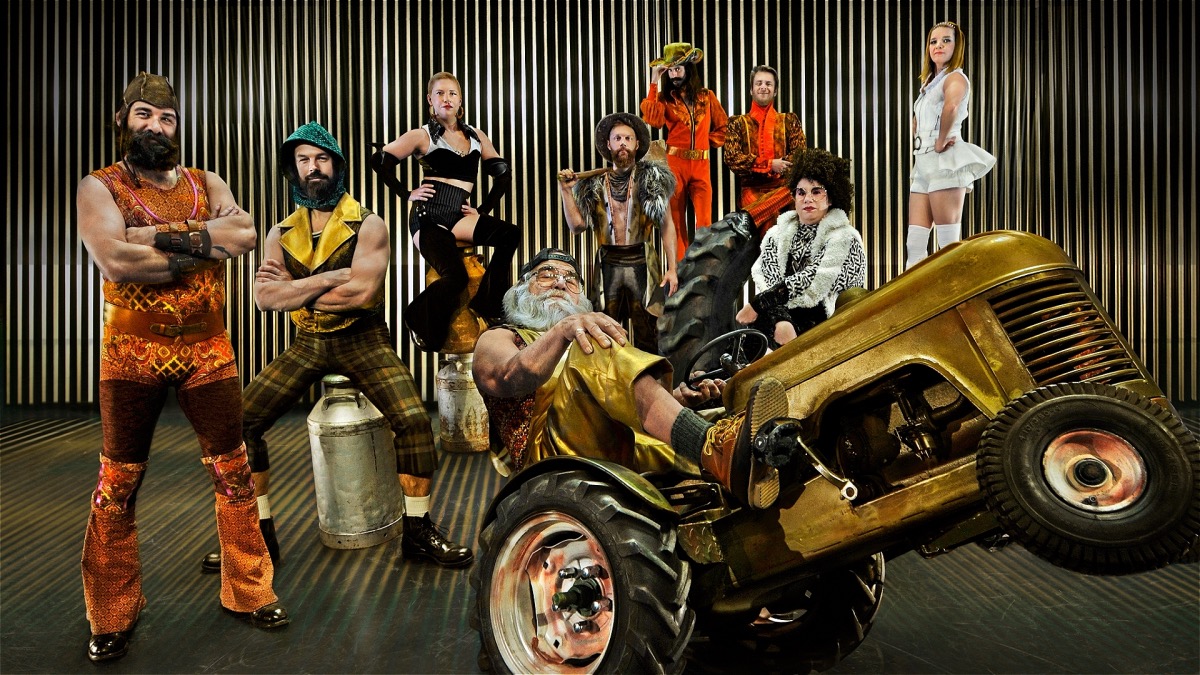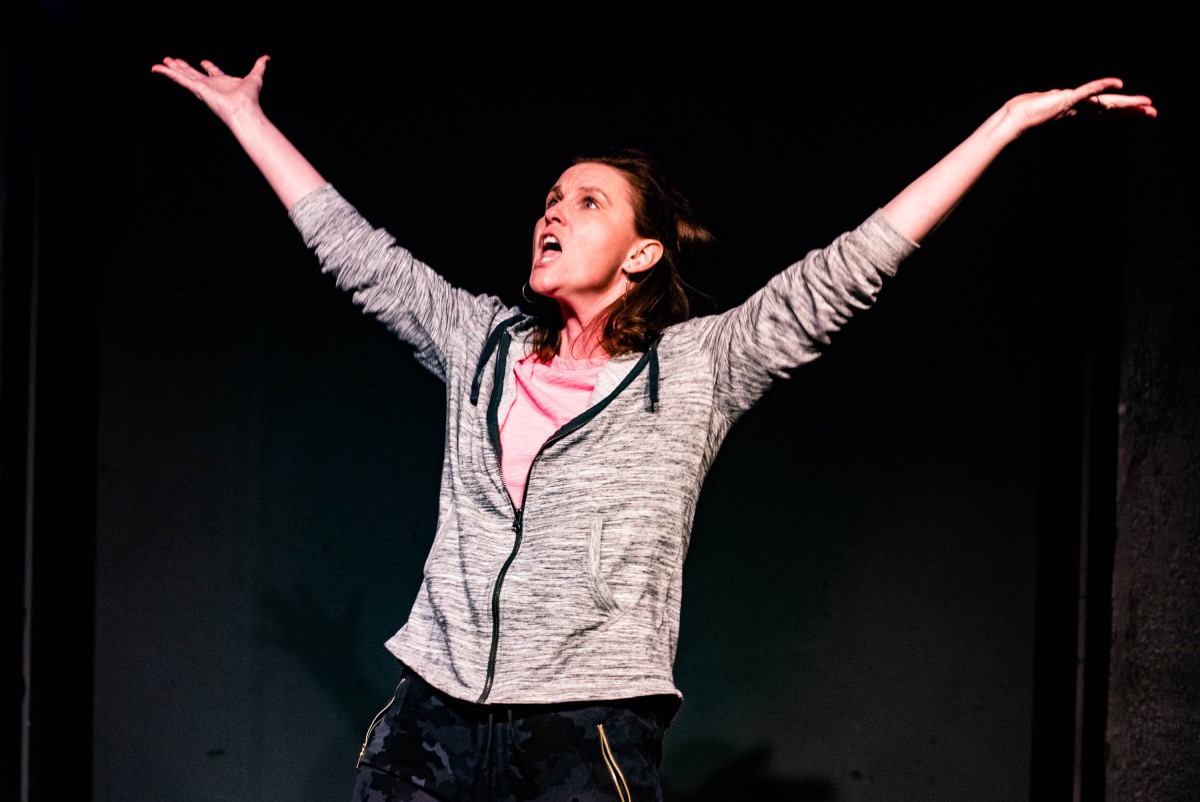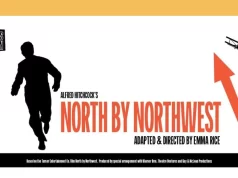Ad Infinitum’s Beautiful Evil Things is told through the eyes of Medusa as she watches the battle of Troy. Directed by George Mann, co-created by Deborah Pugh and George Mann and performed by Deborah Pugh, It takes a look at the alternative stories of the most notorious women in Greek mythology in a new show.
Told with the same high-energy physical storytelling as Ad Infinitum’s award-winning one-man Odyssey, their one-woman race through mythology is a fierce, funny take on female stories throughout history that have been forgotten, distorted or erased.
A bodiless head on the goddess Athena’s shield, the snake-haired Medusa watches over the battle, focusing on queens and prophets whose stories have been cast in the worst possible light. Casting Medusa as an archivist setting the record straight, history is retold with full nuance and colour as seen through a female gaze, and through the most powerful gaze in mythology.
The show opens 18 Oct at Tobacco Factory in Bristol then tours throughout the rest of the year and start of 2023.
The Artiscape spoke with creators George Mann Deborah Pugh about the production.
Can you tell us what inspired you to write this one woman show?
Deborah: We wanted to make a solo show. The epic world of Ancient Greece is always an appealing one and it lends itself weirdly well to solo storytelling; there’s something about the hugeness of the story contained within one performer that makes it super potent. It can, however, be a bit bloke-heavy. George and Nir had so successfully adapted the Odyssey a number of years ago that it felt like a very natural fit to revisit the world and see what the women were up to and what better lens to use than the most infamous female gaze of them all- that of Medusa.
George: Since creating Odyssey in 2009 we have been talking about a follow up to the show, but The Iliad, Homer’s prequel to The Odyssey didn’t feel like the right fit somehow. It turns out we just hadn’t thought of the right way to tell it. Enter Deb Pugh! Collaborating with Deb is really exciting because she has brought so much that is new – it is a chance for us to take that ancient mythical world in a new direction. We both love making theatre that harnesses the power of the body and movement, and Debs is a phenomenal actor, devisor, mover and all round creative so, like with Odyssey, there is a strong physical language to the show, but it’s a physical world that Debs’ has made her own and it’s been such a joy to develop that together.
Like Odyssey, Beautiful Evil Things is a thrilling adventure story – but unlike our 2009 show, Beautiful Evil Things has a particular focus on the women that were overlooked, forgotten, or whose stories were buried, and it’s all narrated by the infamous Medusa, who watches the Trojan War unfold as a decapitated head, strapped as she was to the shield of a goddess.
When Debs and I learnt that Medusa, who arguably has the ancient world’s most powerful female gaze, had witnessed that war, we wanted to know – what did she see? How would she tell that story? That was a big part of what drove the making of this show – and what makes it both similar but also very different to Odyssey: it’s one person’s version of an ancient myth, but while Odysseus’ story is commonly known, Beautiful Evil Things offers us a perspective that’s had much less air time in our modern world, one we can celebrate and embrace.
What were the challenges in writing a play inspired by Greek myths so that you can make it relevant to a contemporary audience?
Deborah: These stories were first told and written down at a time when the role of women in society was very different, and very unsatisfactory by modern standards. Many of the first English translations we received were written by Victorian men who, again, had very specific ideas about the roles women should take, subsequent retellings of the stories were then based on these biased translations so that the female characters lost their depth.
So when I first started researching I was quite disheartened. I felt the immediately accessible, well known stories didn’t offer much for the female characters, they certainly weren’t characters that I connected with or would want to be. Even reaching for modern feminist retellings the main options for women seemed to be a lot of wailing and suffering.
Ad Infinitum’s adaptation of the Odyssey was moving and epic but it was also really fun and exciting, you want to imagine yourself as Odysseus, being a hero; I wanted to make a piece that would be as smart, exciting, funny and fun to watch, with a female protagonist that you might actually want to be.
Very luckily we came across Pandora’s Jar by Natalie Haynes, who goes back to the original Greek texts and finds the fleshed out, complex and brilliant female characters within them who, through centuries of translation have been reduced, diminished or almost vanished entirely.
The next task was to look at reframing these stories, to look at which would be the important parts if they’d been told by a woman, not a man.
Most striking is the amount of sexual violence, particularly against women, in the ancient stories. Not only was it rife but also often central in the women’s stories- a god assaults a woman and she’s subsequently blessed or cursed with the powers that make her famous- this felt a very unsatisfactory on many levels so we stripped out all narrative that had sex with a man as cause or motivation for any of the action and suddenly the stories became a lot more varied, interesting and recognisable- the characters were able to drive their own stories not be in passive receipt of them.
What are you looking forward to about the performance?
George: We have talked about Debs doing a one-woman show for… so long! I’m so happy this is finally opening and touring.
After years of being locked down, of being imprisoned in zoom rooms and reduced to 2D versions of ourselves, I just can’t wait to witness this in-person communal event again, to feel that energy – of a live audience connecting to one another through a shared experience, to be in an auditorium waiting for the show to start and not knowing exactly how it will go that evening, to discuss and get passionate about the show with audiences afterwards and in the debate that’s sparked by theatre.
It’s a unique art form, and I’ve bloody missed collaborating, making it and sharing it: here goes!
Deborah: Meeting the audience is always exciting but particularly with this show as the audience narrator relationship is an important and intimate one. Medusa is an archivist, a storyteller- she is driven to share stories and so far she’s only had George to tell them to, she’s bursting for an audience.
What do you think an audience will enjoy about this performance?
Deborah: It’s epic yet intimate, fast, physical and surprisingly funny. If this is your first foray into the world of Greek myths it is an exciting introduction to some phenomenal characters that are often overlooked in traditional tellings and, if you are a hard-bitten classicist, you’ll find familiar stories that have been well honoured but approached from a less well-trodden path. It’s an evening in the company of some of the most incredible women of the ancient world.
George: It’s a thrilling adventure story, a story we think we know, but surprising in how it tells it in a completely different way from an entirely alternative perspective.
As well as being searingly funny, Debs’ portrayal of Medusa and the ancient wonder women she plays, is also poignant and moving. I think it’s a bit of a love letter to the power of storytelling to help us connect beyond our own lived experience, and I hope it is something every audience member can connect with.
And finally, and yes I am biased, Debs’ performance, playing a multitude of characters, led by the ever-fierce Medusa, is something I think everyone will enjoy – she’s a phenomenal all-round talent, an amazing physical performer and mover, and I can’t wait to see the show come to life when it’s shared with an audience who will get to witness the tour de force that is Deb Pugh.
Ad Infinitum is an international ensemble based in Bristol, developing new and original theatre. Founded in 2007, Ad Infinitum is led by Co-Artistic Directors, Nir Paldi and George Mann. They create shape-shifting socio-political theatre to provoke, move and inspire through innovative storytelling and bold experimental styles. Ad Infinitum’s theatre draws upon the power of the body, engages audiences with urgent issues, and ignites passionate debate.
Previous shows include Extraordinary Wall [of Silence], No Kids, Translunar Paradise, Odyssey, Bucket List, Light, and Ballad of the Burning Star. Ad Infinitum is Associate Artist at Bristol Old Vic and The North Wall. They are Associate Artist Alumni at the Bush Theatre (2011-2013), The Lowry (2011-2017) and Redbridge Drama Centre (2009-2017).Their work has won awards at the Edinburgh Fringe (including Spirit of the Fringe and multiple Stage Awards), across the UK (including the Argus Angel Award), and many awards internationally.
| Ad Infinitum presents: Beautiful Evil Things, A fierce, funny look at the alternative stories of the villainised women in Greek mythology Co-created by Deborah Pugh and George Mann | Performed by Deborah Pugh | Directed by George Mann TOUR 18 October to 28 February 2023 Co-commissioned by Tobacco Factory Theatres with support from The Wardrobe Ensemble. Made possible through funding from Arts Council England. Learning & Engagement project supported by funding from Theatre Orchard and Culture Weston; and ‘Into the Arts’ administered by Quartet Community Foundation. Running Time: 70 mins approx | Suitable for ages 12+ @TheatreAdInf | #BeautifulEvilThings | www.ad-infinitum.org |


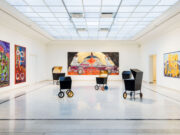
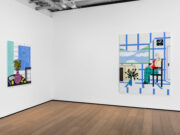
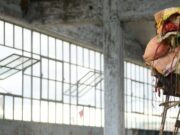
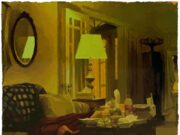
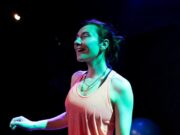
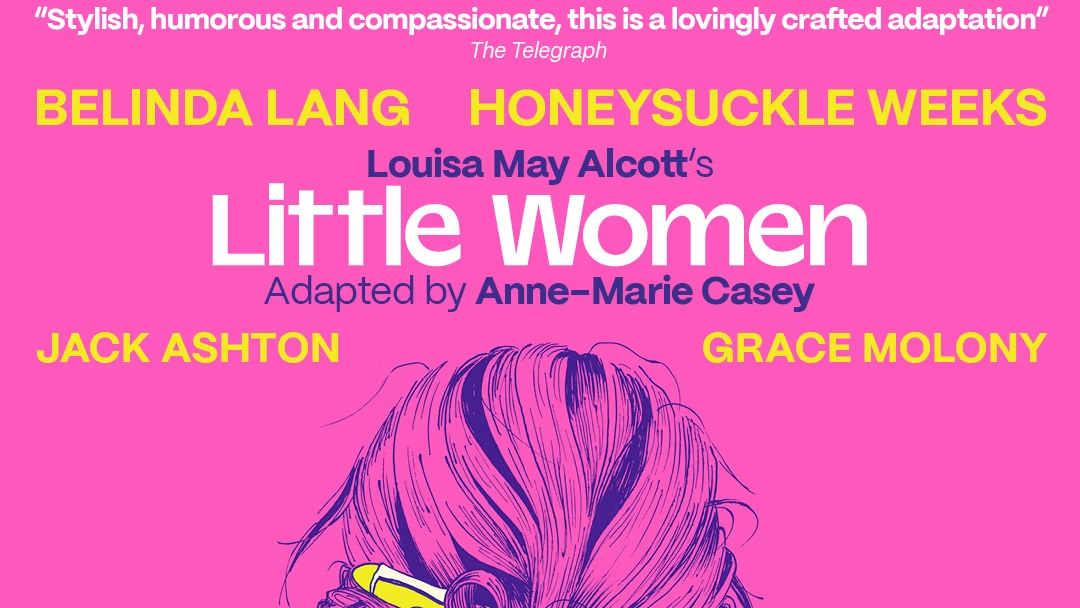
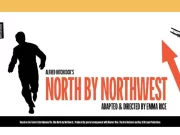
![Antigone [on strike] | Review Ali Hadji-Heshmati and Hiba Medina in Antigone [on strike] at Park Theatre, London. Photo: Nir Segal](https://theartiscapegallery.com/wp-content/uploads/2025/02/Antigone-on-strike-photo-by-Nir-Segal-D1_Standard-180x135.jpg)
